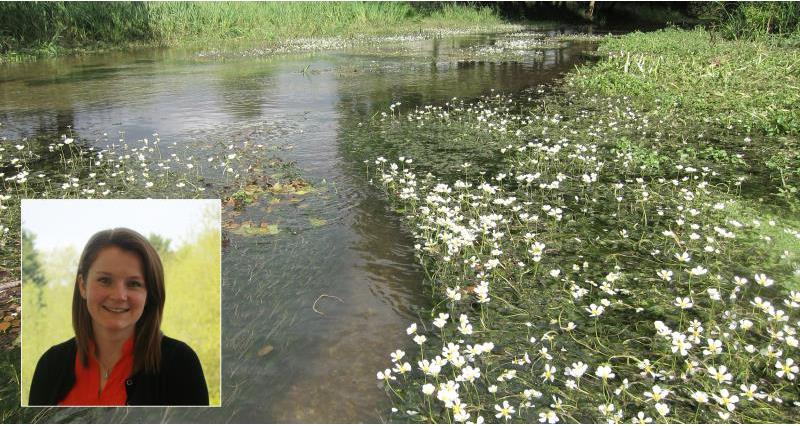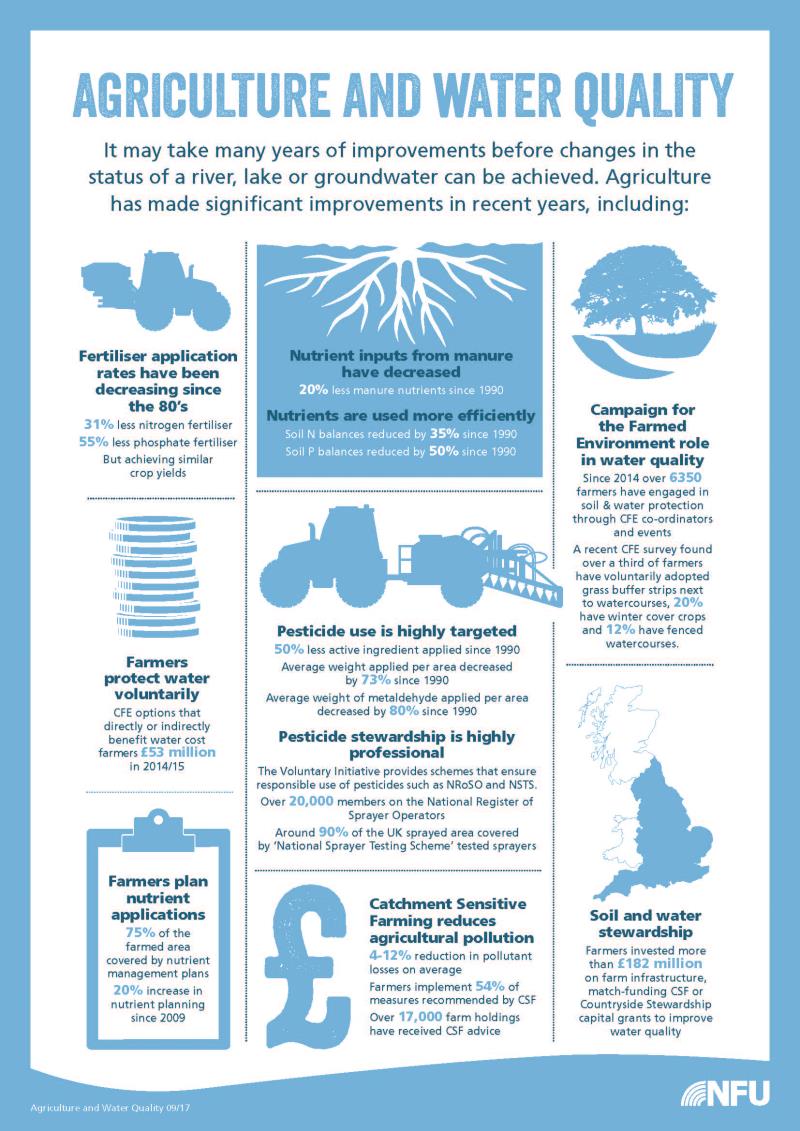She writes:
Farmers are taking a wide range of different actions that are actively improving water quality. But are these measures being recognised?
The Nitrates Directive and the Water Framework Directive requires farmers to follow the rules regarding manure, fertiliser and soil management. The Waste Framework Directive has further rules around the application of waste products such as composts or digestates. Cross Compliance requires farmers that benefit from the Basic Payment Scheme to comply with several standards such as soil management and buffer zones. In addition to all of the current rules, farmers can expect the new ‘Farming Rules for Water’ to be introduced from April 2018.
Government is looking at why waterbodies are failing and what can be done to improve England’s waters. Lots of industries and activities can cause problems in the water environment. The primary focus of government and academic research in recent years has been on diffuse agricultural pollution. This attention to farming is not necessarily an accurate reflection of the cause of pollution in many catchments. Leaking sewers, septic tanks, forestry, golf courses and urban sewage treatment works also contribute to pollution. Therefore the NFU has been working hard to ensure that other industries are considered as well as agriculture with regards to impact on water quality and the excellent work that farmers are doing on farm to protect water quality is being recognised.
Farmers are going above and beyond their legislative requirement to protect water quality.
The facts and figures that can be seen on the infographic below show just some of the additional measures that farmers are putting in place to mitigate their potential impact.
These facts and figures matter because there is pressure on government to increase regulation to solve water quality problems. The infographic shows just some of the ways that farmers are actively working to protect water quality without being enforced by law.
Farmers can help us to make our case to government by getting involved in industry-led initiatives (e.g. CFE, Tried & Tested and the Voluntary Initiative), incentivised schemes like Countryside Stewardship, and local projects such as Catchment Partnerships.

